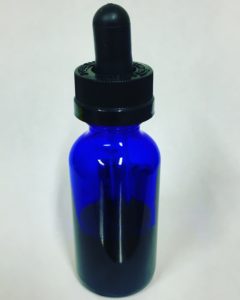 A recent poll found staggering 93% approval for medical marijuana among American voters, but that level of public support took a long time to develop. The first efforts to implement regulated medical marijuana programs at the state level were often questioned by critics who claimed medical marijuana was just a cynical effort to legalize and facilitate recreational use. One major shift in that debate has occurred in recent years, as cannabis medicines rich in CBD have emerged as a non-psychoactive option with potential to treat severe forms of pediatric epilepsy.
A recent poll found staggering 93% approval for medical marijuana among American voters, but that level of public support took a long time to develop. The first efforts to implement regulated medical marijuana programs at the state level were often questioned by critics who claimed medical marijuana was just a cynical effort to legalize and facilitate recreational use. One major shift in that debate has occurred in recent years, as cannabis medicines rich in CBD have emerged as a non-psychoactive option with potential to treat severe forms of pediatric epilepsy.
A recent New York Post Op-Ed from columnist Michelle Malkin illustrates powerfully how CBD-based medicines are changing the medical marijuana conversation. Malkin, a former critic of medical marijuana, shares the moving story of how a health crisis in her own family challenged her previously-held beliefs and opened her eyes to the importance of making medical marijuana available to patients and researchers:
My own interest in medicinal marijuana is more than academic. When my daughter, Veronica, fell ill in late spring of 2015 — unable to breathe normally, bedridden with chronic pain and fatigue — she saw dozens of specialists. Among those doctors was a leading neurologist at one of Denver’s most well-regarded hospitals who treated intractable cases. The various drugs prescribed to my daughter weren’t working and had awful side effects.
To our surprise, the mainstream neurologist suggested Veronica try CBD. This doctor had other young patients who used CBD oil with positive results. So we did our own independent research, talked to a Colorado Springs family whose son had great success using CBD to treat his Crohn’s disease symptoms, consulted with other medical professionals and friends — and entered a whole new world.
…
For Veronica, CBD provided more relief than all the other mainstream pharmaceutical interventions she had endured, and without scary side effects. But ultimately, it was a temporary remedy for her complicated basket of neurological and physiological conditions. We were glad for the chance to try CBD at the recommendation of medical professionals, and glad that so many other families are having success with it. [New York Post]
It’s a story that resonates with us because we’ve known numerous patients and caregivers who followed a similar path to discovering what medical marijuana can offer when other options have failed. Stories just like this one also inspired CNN’s Chief Medical Correspondent Dr. Sanjay Gupta to reverse his own long-held stance opposing medical marijuana and issue an apology in which he pledged to support patient access and robust research.
Malkin goes on to make the important point that families facing a health emergency need the ability to make informed choices with the help of their doctors. We’ve learned from years of experience working with patients who suffer from a wide range of conditions that each individual’s circumstances are unique. When sharing the experiences that led them to try medical marijuana, patients often describe adverse reaction to conventional therapies or complications created by multiple diagnoses. The problem for many is not that other effective treatments don’t exist, but rather that those treatments weren’t effective in their case due to complicating factors.
On the surface, the conversation surrounding CBD-rich cannabis medicines has drawn such significant attention due to the promising application of these products in treating especially challenging forms of pediatric epilepsy, as well as the myth-busting fact that these formulations are non-psychoactive. The larger lesson, however, as Malkin explains, is that all patients, caregivers, and medical professionals must have alternative options available when someone is suffering and seeking relief. It is that principle which underscores the efforts of a growing number of states to implement regulated and patient-focused medical marijuana programs. It’s also the reason why we do the work we do and we’re always grateful to see new voices joining the conversation about how to make life better for those in need.
